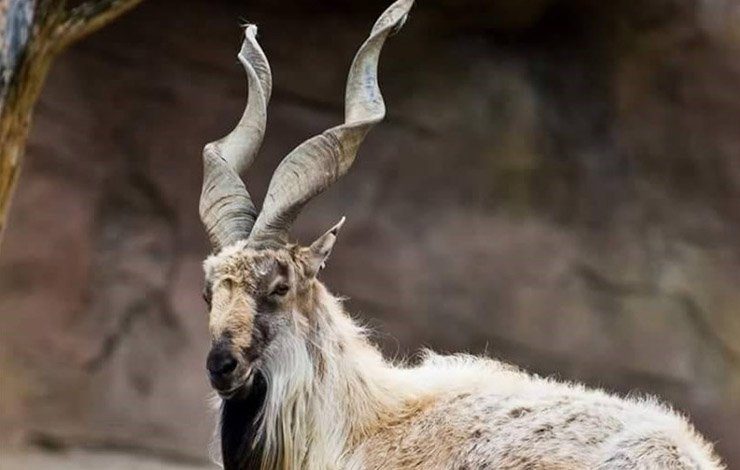The GB Forest, Parks, and Wildlife Department has auctioned four licences for hunting the prized Astore Markhor, one of which fetched a record $186,000. The permits to hunt 104 rare species were auctioned as part of the trophy hunting programme for 2023-24.
Both foreign and local hunters, along with outfitters, participated in the bidding process at the GB Wildlife, Forest Environ-ment department’s head office.
This auction encompassed licences for hunting four Astore markhors, 14 blue sheep, and 88 Himalayan ibex in various community conservation areas across GB.
Following intense competition among outfitters, the Astore markhor permits were awarded, with the base rate set at $90,000.
The highest permit for Astore markhor was sold for $186,000, the second for $181,000, the third for $177,000, and the fourth for $171,000.
The base rate fees for blue sheep and Himalayan ibex permits were $9,000 and $5,500, respectively. The trophy hunting programme adheres to the “GB Trophy Hunting Guidelines 2019,” with the hunting season for ungulate species running from November 1, 2023, to April 25, 2024.
One noteworthy aspect of this programme is that 80 per cent of the proceeds go to local communities, which utilise the funds for various development projects, including education and healthcare. The remaining 20pc is deposited into the government’s treasury.
But environmentalists, including Muhammad Karim, Safdar Hussain, and Mahboob Rabbani, among others, have voiced opposition to the trophy hunting programme. They attribute the shrinking population of endangered animals to illegal hunting, for which they blame negligence of the wildlife department.
Every year, foreign tourists and influential individuals from across the country visit the region for hunting, obtaining permits from the wildlife department. However, there are frequent violations of hunting rules, including the killing of young species and the use of inappropriate weaponry.
Violations of trophy hunting rules are common in GB, exacerbating the threat of extinction for some rare species.

